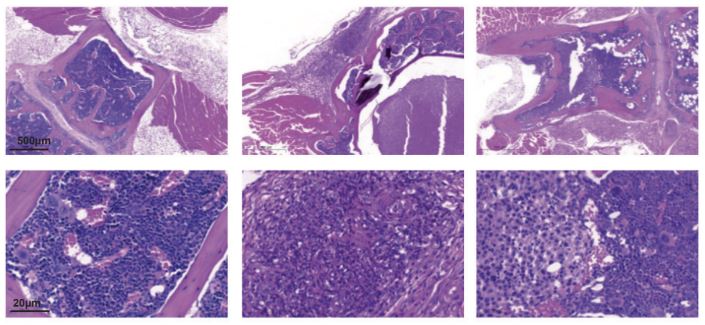Introducing ZMAT3, a new player in the fight against cancer
Introducing ZMAT3, a new player in the fight against cancer
The study co-led by Ana Janic, leader of the Cancer Biology Laboratory at MELIS-UPF, dissects the role of ZMAT3, a tumor suppressor gene regulated by p53, that participates in our body's normal response to prevent the development of lymphomas, leukemias and other cancers.

A new international study co-led by Ana Janic, head of the Cancer Biology Group of the Department of Medicine and Life Sciences (MELIS) at the Pompeu Fabra University, and researchers from Walter and Eliza Hall Institute (WEHI) in Australia deciphers the role of the ZMAT3 protein as tumor suppressor. ZMAT3 participates in our body's normal p53-triggered-response to prevent cancer.
Half of all cancers in the world are linked to mutations in the tumor suppressor gene p53. People who inherit mutations in the p53 gene face a significantly high risk of developing various types of cancers. The study, published in Cell Death and Differentiation, dissects the mechanisms by which p53 slows cancer development by identifying the connection between the p53 gene and the ZMAT3 gene, which is essential for its effectiveness in preventing the development of lymphomas, leukemias and various other cancers.
Despite being a tumor suppressor, ZMAT3’s activity is less pronounced than p53, since its loss does not cause cancer, per se. But its ability to prevent tumors becomes apparent when p53 dependent actions - like causing cell death or stopping cell growth - are both turned off at the same time.
Combining expertise in cancer biology and bioinformatics, this research demonstrates that ZMAT3 contributes to tumor growth by regulating many mRNAs that work in a loop, by turning on cellular responses controlled by p53.
It is not just one protein but a team of the proteins with many important functions that collaborate with p53 to prevent cancer growth
“Our study has proved, for the first time, that it is not just one protein but a team of the proteins with many important functions that collaborate with p53 to prevent cancer growth; instead of just halting cell division or causing cell death, they work together with ZMAT3 to regulate mRNA processing. Exploring how these processes work together is an important step in understanding how p53 prevents tumor development. And, once we understand this, we will be able to use this knowledge to develop better treatments for cancer”, says Ana Janic, who has co-led the study.
The findings of these research supported by the Agencia Estatal de Investigación (AEI), Programa Captació de Talent Investigador “La Caixa” foundation, Australian Phenomics Network, the Australian National Health and Medical Research Council (NHMRC), the Leukemia and Lymphoma Society of America, the Cancer Council of Victoria & the Swedish Cancer Society, highlight the importance of having a coordinated p53-mediated cellular response for tumor suppression. Something that could impact the design of future strategies to develop more effective therapies to treat cancer.
